Belgium
Factsheet
| ETHNIC MINORITIES: | |
|
Muslim: Roma: |
6% 0.3% |
| RELIGIONS: | |
|
Roman Catholic: |
75% |
| NET MIGRATION: | 200,000 |
| POP. GROWTH RATE: | +0.9% |
| GDP GROWTH: | +1.0% |
| GDP PER CAPITA: | 43,372 |
| UNEMPLOYMENT: | 8.4% |
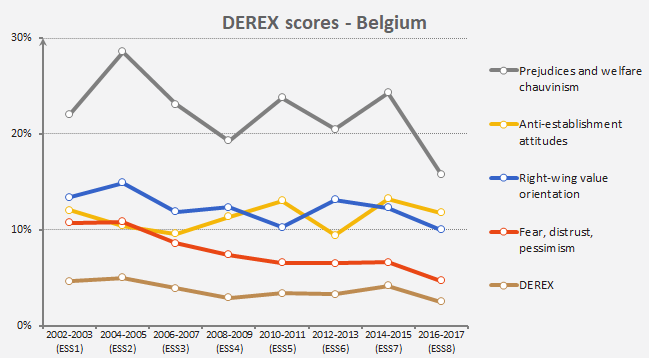
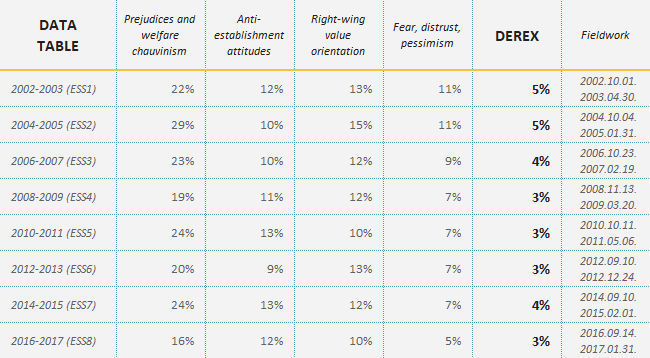
Flemish Interest (Vlaams Belang, VB)
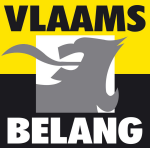
Led by Bruno Valkeniers, the Flemish Interest (Vlaams Belang, VB) is a separatist and anti-Islam party in Belgium. It has connections to the Front National, Lega Nord and the Austrian Freedom Party. The party was established in 2004 after Belgian judges ruled that its predecessor, the Flemish Block (Vlaams Bloc), was a ‘racist’ organization, which resulted in a loss of state funding and the party’s subsequent repackaging. The Flemish Block had been described as a party of ‘skinheads, Nazi collaborators and white supremacists’. The VB has since moderated its rhetoric. Concerning the issue of immigration, the party supports strict controls and the abolition of the naturalization law. It wants to transform schools with high proportions of Muslims into integration schools, where classes focus on language, European norms and values. It also argues for a ‘remigration’ policy for Muslims who do not accept Western values, as well as for women’s rights and freedom of speech. In other areas, the VB has a policy of zero tolerance for crime, opposes a European federation, and advocates the independence of Flanders from the Belgian state.
Between 2000 and 2010 the party enjoyed a relatively high popular support of over 10%, although at the most recent 2010 general election that dropped to 7.8%. The polls indicate that the decline is part of a long-term trend; in the second half of 2013 only 7.2% of the electorate stood behind the party. Unlike the far-right in general, the VB pursues a philo-Semitic and pro-Israel policy; thanks to this and its hostility to Muslims it enjoys the support of a large part of Antwerp’s Jewish community. In 2010 a party delegation accepted the ’Jerusalem Declaration’ in support of the state of Israel. As a demonstration of the good relations between the VB and Israel, in 2011 Israel’s interior minister, Ayoob Kara, paid a visit to party headquarters.
At the September 2013 Europe Festival attended by the Front National and the Swedish Democrats, the VB presented its ”anti-Union but pro-Europe” program. In place of a bureaucratic and centralized system, the party promotes the creation of European regionalism based on sovereign states. In the 2014 spring campaign, aside from an opposition to the EU, the focus was on Muslim immigration and cultural issues.A year before Europe was hit with the migration crisis, the VB had been unsuccessful in extending its voter base building upon such a campaign. At the May 2014 federal elections the party only received somewhat less than 3.7% of the votes and since this result was below the five percent threshold the party lost its representation in the federal Chamber. However, 248 000 supporters at the time and an emphasis on policy recommendations targeting the Muslim minority imply that the VB can potentially reverse the electoral decline it experienced. After the Paris attacks in November 2015, leading VB politician Filip Dewinter called for the closure of Belgium’s borders with the aim of stopping an ‘infiltration by immigrants and the ISIL’. Opinion polls at the end of 2015 and the beginning of 2016 suggest that the party’s support is currently between 8-12% of all voters, in which case it is clearly gaining in popularity.
Today, Vlaams Belang forms an alliance called "Europe of Nations and Freedoms" with certain far-right parties in the European Parliament including the Front National and the PVV.
(Last update on 8. April, 2016)
VB on the Internet:
Sources:
- Jamie Bartlett et al.: “The New Face of Digital Populism.” Demos: London 2011, p. 109-110. Available online at http://www.demos.co.uk/files/Demos_OSIPOP_Book-web_03.pdf?1320601634
- Political Capital
Parliamentary elections (Chamber of Deputies) - May 25, 2014
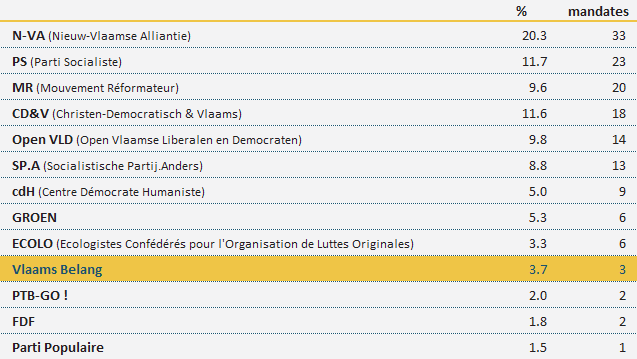

European elections - May 25, 2014
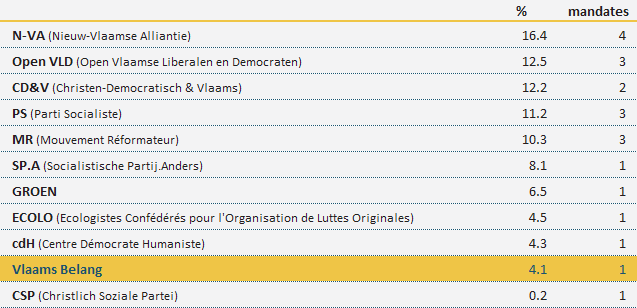

Parliamentary elections (Chamber of Deputies) - June 13, 2010
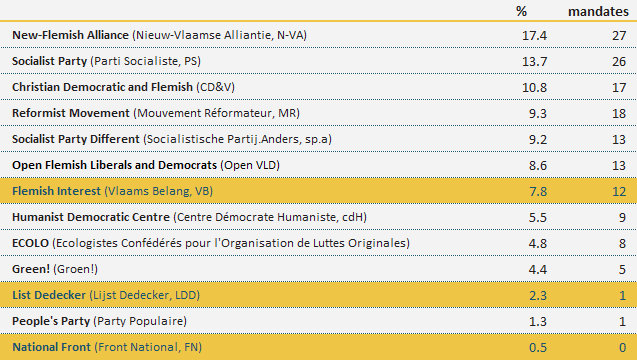

European elections - June 7, 2009
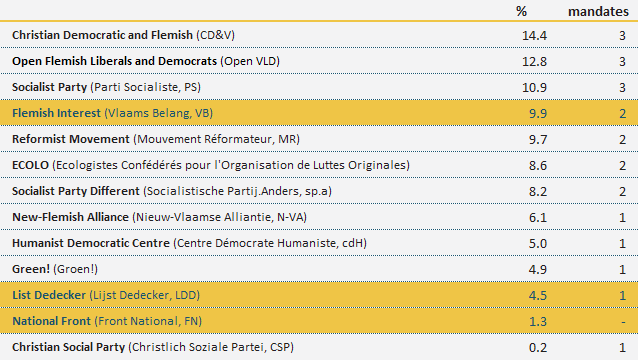
Sources: Federal Public Services Home Affairs, EP2014; 2014
Our thematic websites
Political Capital's analyses and activities in English.
Research and advocacy programme focused on the role conspiracy theorising plays in shaping populist and radical politics.
Our project New electoral system in Hungary: watchdogging, advocacy and raising awareness focuses on the electoral reform in Hungary.
Our blog on political and societal extremism and conspiracy theories.
DEREX website is supported by










